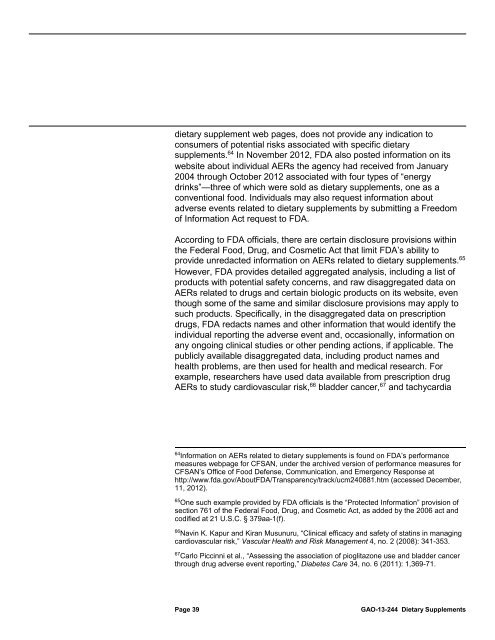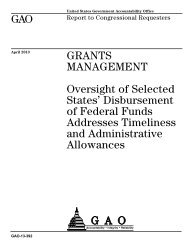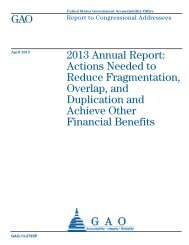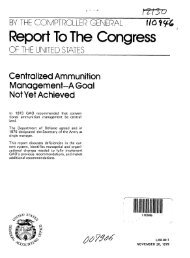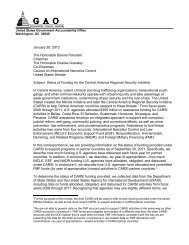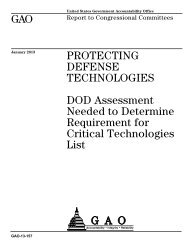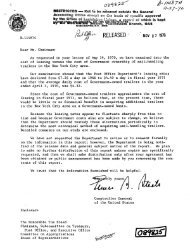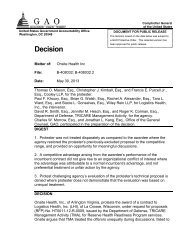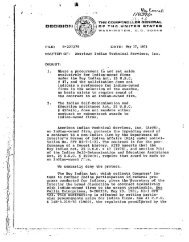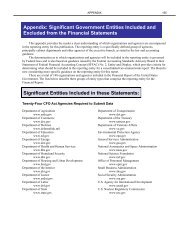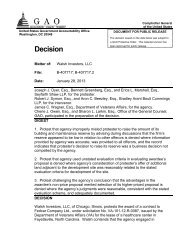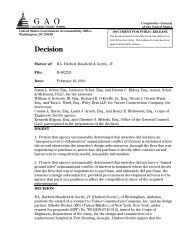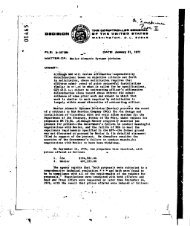Dietary supplements: FDA may have opportunities to expand its use
Dietary supplements: FDA may have opportunities to expand its use
Dietary supplements: FDA may have opportunities to expand its use
You also want an ePaper? Increase the reach of your titles
YUMPU automatically turns print PDFs into web optimized ePapers that Google loves.
dietary supplement web pages, does not provide any indication <strong>to</strong><br />
consumers of potential risks associated with specific dietary<br />
<strong>supplements</strong>. 64 In November 2012, <strong>FDA</strong> also posted information on <strong>its</strong><br />
website about individual AERs the agency had received from January<br />
2004 through Oc<strong>to</strong>ber 2012 associated with four types of “energy<br />
drinks”—three of which were sold as dietary <strong>supplements</strong>, one as a<br />
conventional food. Individuals <strong>may</strong> also request information about<br />
adverse events related <strong>to</strong> dietary <strong>supplements</strong> by submitting a Freedom<br />
of Information Act request <strong>to</strong> <strong>FDA</strong>.<br />
According <strong>to</strong> <strong>FDA</strong> officials, there are certain disclosure provisions within<br />
the Federal Food, Drug, and Cosmetic Act that limit <strong>FDA</strong>’s ability <strong>to</strong><br />
provide unredacted information on AERs related <strong>to</strong> dietary <strong>supplements</strong>. 65<br />
However, <strong>FDA</strong> provides detailed aggregated analysis, including a list of<br />
products with potential safety concerns, and raw disaggregated data on<br />
AERs related <strong>to</strong> drugs and certain biologic products on <strong>its</strong> website, even<br />
though some of the same and similar disclosure provisions <strong>may</strong> apply <strong>to</strong><br />
such products. Specifically, in the disaggregated data on prescription<br />
drugs, <strong>FDA</strong> redacts names and other information that would identify the<br />
individual reporting the adverse event and, occasionally, information on<br />
any ongoing clinical studies or other pending actions, if applicable. The<br />
publicly available disaggregated data, including product names and<br />
health problems, are then <strong>use</strong>d for health and medical research. For<br />
example, researchers <strong>have</strong> <strong>use</strong>d data available from prescription drug<br />
AERs <strong>to</strong> study cardiovascular risk, 66 bladder cancer, 67 and tachycardia<br />
64 Information on AERs related <strong>to</strong> dietary <strong>supplements</strong> is found on <strong>FDA</strong>’s performance<br />
measures webpage for CFSAN, under the archived version of performance measures for<br />
CFSAN’s Office of Food Defense, Communication, and Emergency Response at<br />
http://www.fda.gov/About<strong>FDA</strong>/Transparency/track/ucm240881.htm (accessed December,<br />
11, 2012).<br />
65 One such example provided by <strong>FDA</strong> officials is the “Protected Information” provision of<br />
section 761 of the Federal Food, Drug, and Cosmetic Act, as added by the 2006 act and<br />
codified at 21 U.S.C. § 379aa-1(f).<br />
66 Navin K. Kapur and Kiran Musunuru, “Clinical efficacy and safety of statins in managing<br />
cardiovascular risk,” Vascular Health and Risk Management 4, no. 2 (2008): 341-353.<br />
67 Carlo Piccinni et al., “Assessing the association of pioglitazone <strong>use</strong> and bladder cancer<br />
through drug adverse event reporting,” Diabetes Care 34, no. 6 (2011): 1,369-71.<br />
Page 39<br />
GAO-13-244 <strong>Dietary</strong> Supplements


